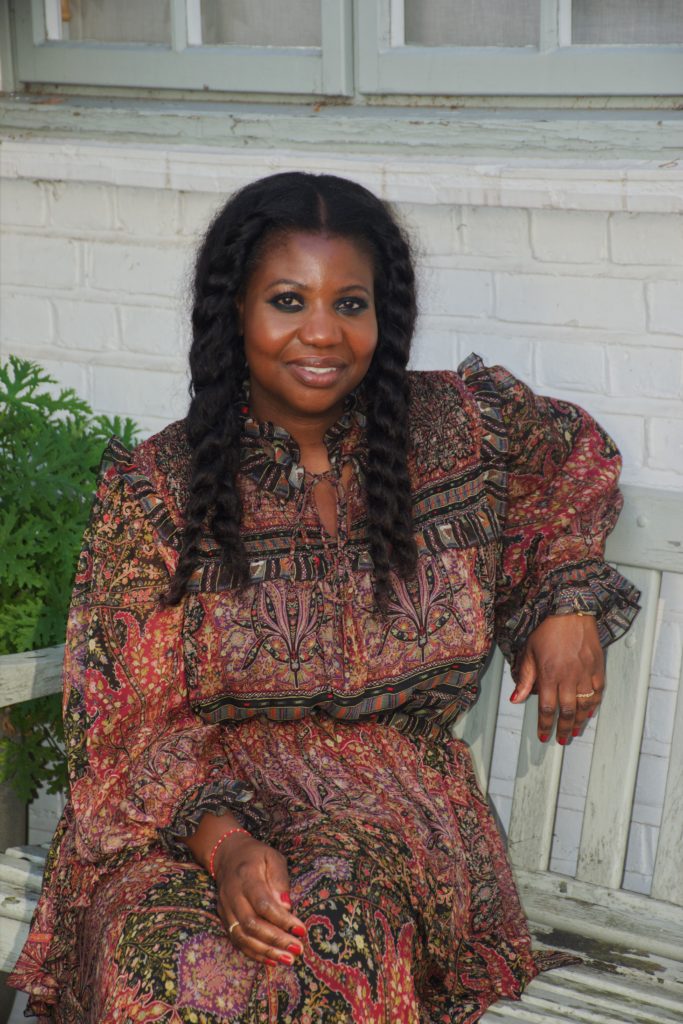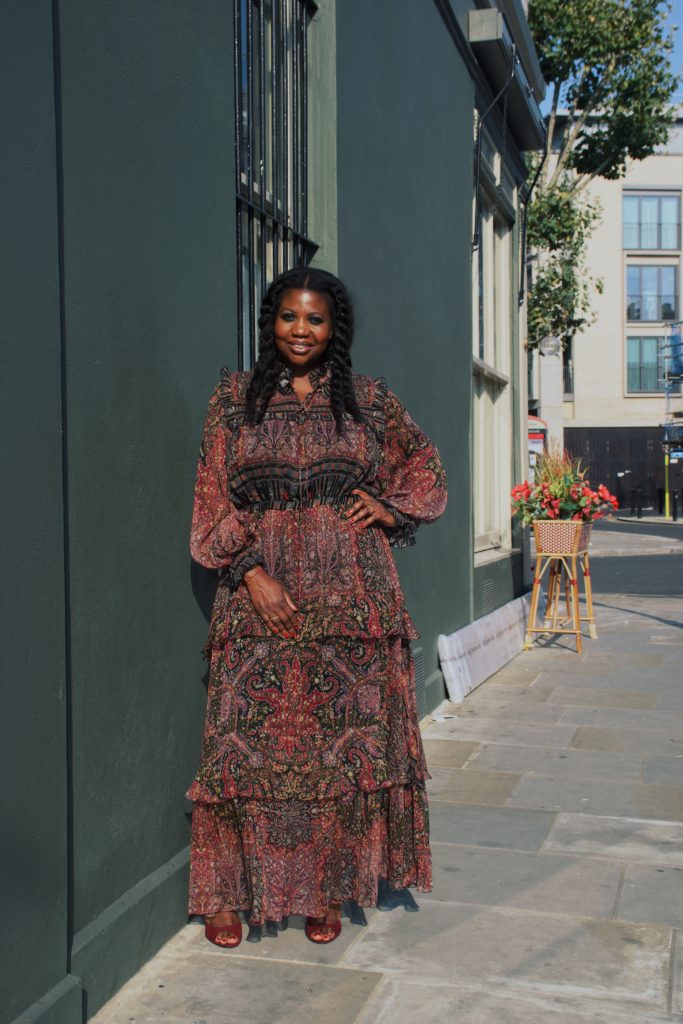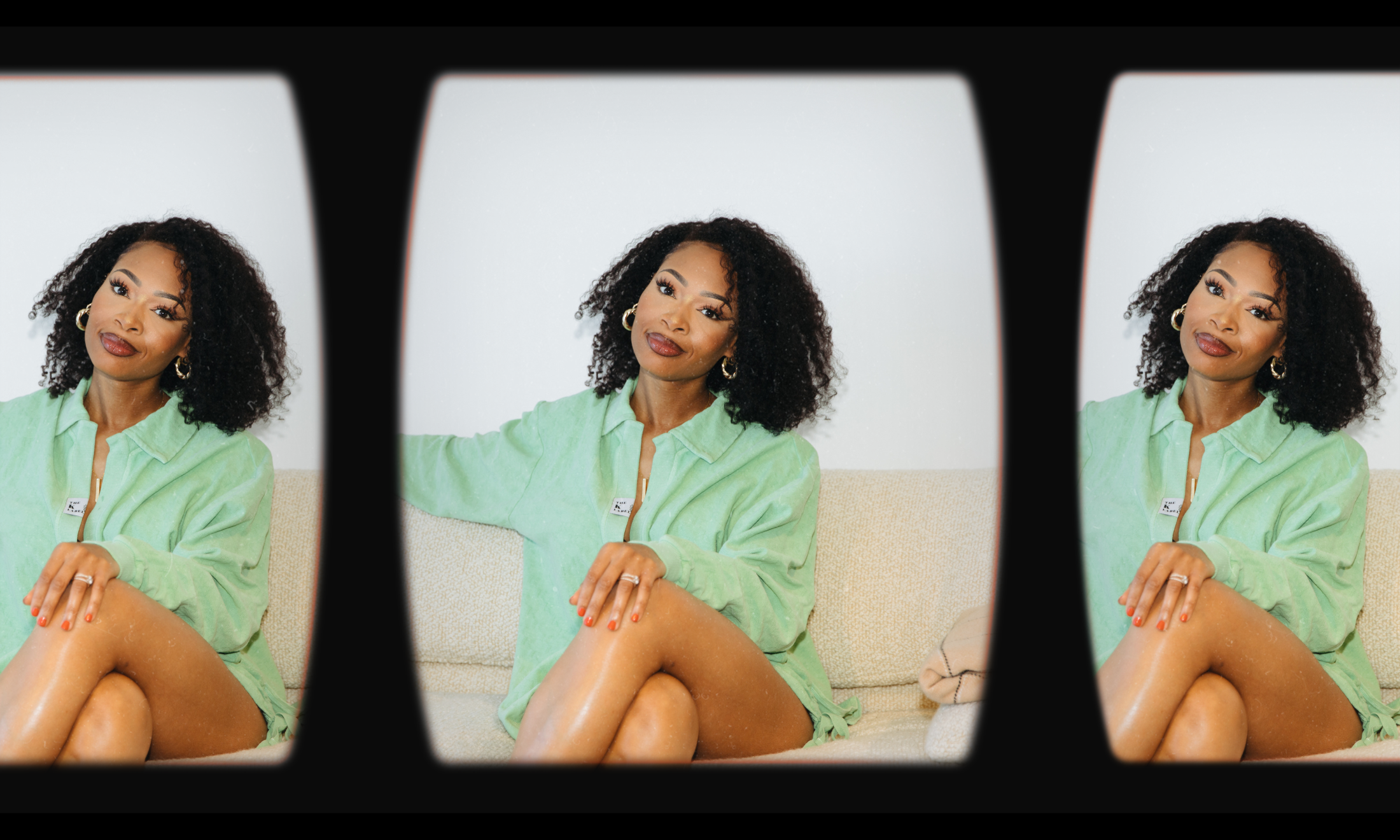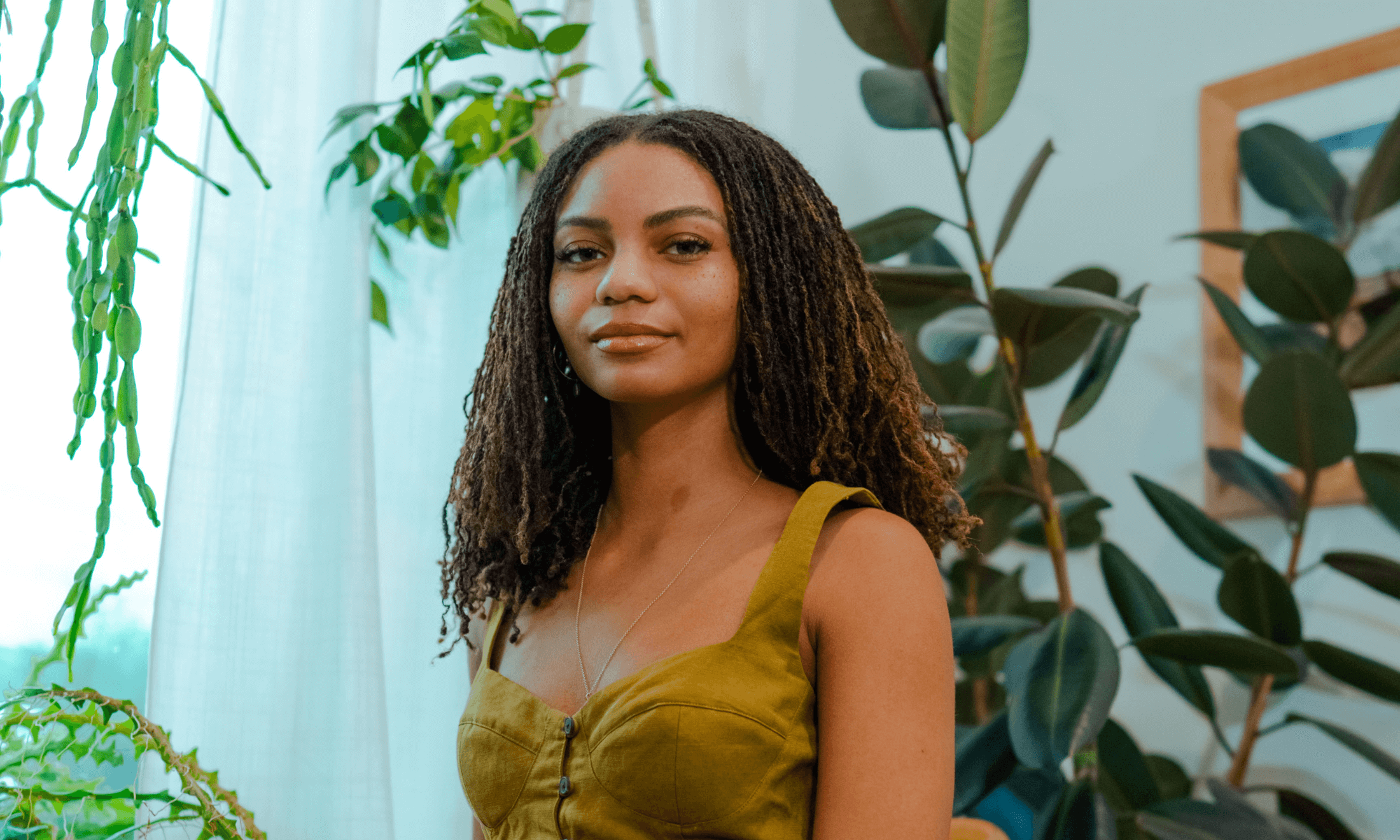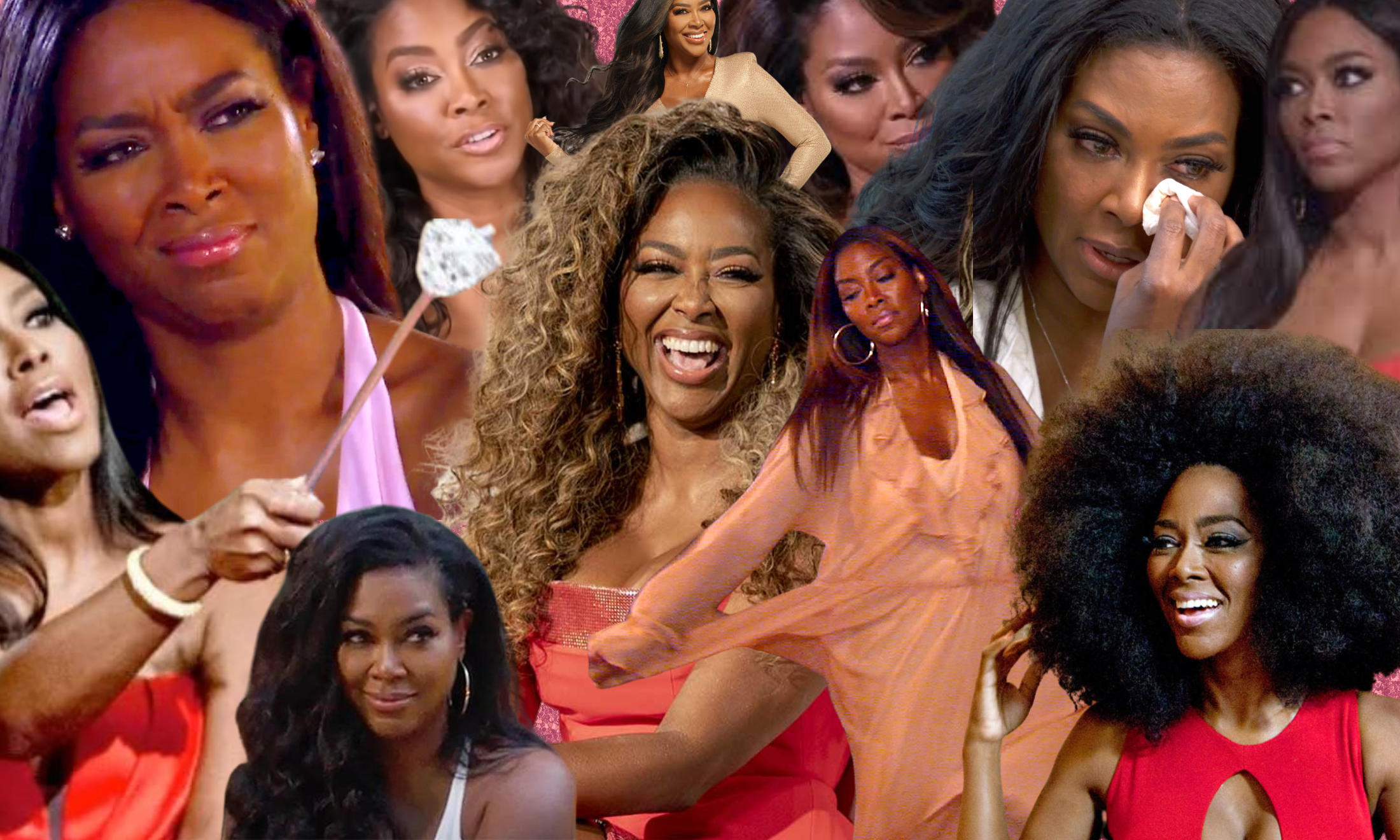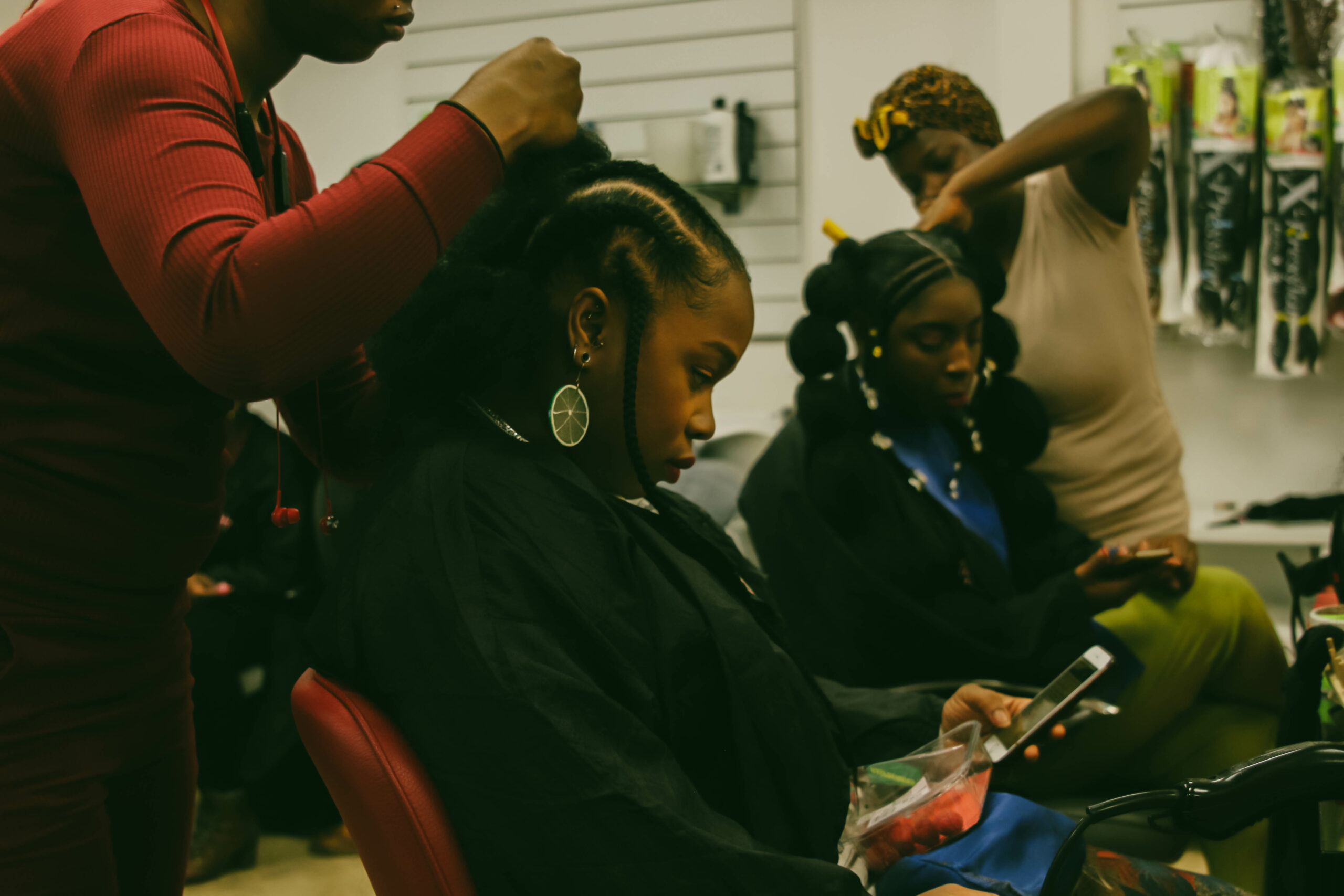
Photography by Karen Lasme
Charlotte Mensah’s ‘Good Hair’ is the afro anthology the UK’s been waiting for
gal-dem's Afro Answers columnist Ebuni Ajiduah speaks to the award-winning hairstylist about her new book Good Hair.
Ebuni Ajiduah
02 Dec 2020
“Good hair” is an evocative statement for Black people. An off the cuff comment that does more harm than good. It’s usually a way to describe afro hair that’s shiny, glossy, long, thick, manageable – everything that typical afro hair is not.
Charlotte Mensah, a Black British Hairdresser with several accolades to her name, including being the first Black women inducted to the British Hairdressing Awards hall of fame, has penned a guide book with the same moniker. Part memoir, part guide, her book touches on the history of our hair and provides insights into our habits and the best way to treat and style it. Don’t worry, Charlotte does not feed into any of the negative tropes about afro hair/ In fact, she does the opposite by gently teaching and guiding the reader to get the best out of their hair regardless of curl pattern.
Hair is a touchy subject for most Black people, as we can all recall a time when the feelings we had towards our hair were less than flattering. In 2009, Chris Rock explored the themes and consequences of “good hair” in a groundbreaking documentary that unpicked the relationship Black women have to attaining this goal. Since then, people across the globe have been ditching the relaxers and returning to natural. This journey of learning and discovery takes on many shapes – the rise of YouTube, forums and blogs have helped novices learn how to really look after their locs and it’s exactly what Charlotte does with this book.
After reading Good Hair, I was privileged to talk it over with Charlotte and discuss some of the themes that stood out to me. I was initially taken back by her warmness and interest in me. In fact, the first 10 mins felt like I was the one being interviewed as she took a genuine interest in my own journey and relationship to hair. Her jovial character really brought the stories in the book to life and made me feel like I was talking to an old friend.
Although the connotations of “good hair” are usually focused on the diaspora, growing up, Charlotte, who spent her formative years in Accra, Ghana, recalls it being a common topic.
“Anytime one of my aunties had a baby, the first thing everybody would ask is, ‘Is it a girl?’ and they’ll say, ‘Has she got hair?’ I used to think, why is that such a big thing?” she says. “And then if your hair is short nobody saw it as ‘good hair’. If your hair was tightly coiled, nothing positive was spoken about this hair type. I’m talking about the 4b/4c textures.”
“Anytime one of my aunties had a baby, the first thing everybody would ask is, ‘Is it a girl?’ and they’ll say, ‘has she got good hair?’”
– Charlotte Mensah
She was someone who had “good hair” by their standards, but the playing field was levelled as during her school years, as all students in her school were required to have their heads shaved for hygiene purposes. In other ways, Charlotte was anything from equal. As the only child born abroad to parents living in the UK, Charlotte was the apple of her grandparent’s eye and raised in a family compound surrounded by dozens of siblings, aunties and uncles.
“Dada, from the moment I arrived in my basket, treated me as very special. I would even go as far as to say that he spoiled me. He often took me to his boardroom meetings, from when I was as young as five years old!” she smiles.
It’s important to note that Dada, Charlotte’s maternal grandfather is J.K. Siaw, the owner of the largest brewery in West African and the first to bring draught beer into Ghana. This special treatment gave her valuable tools and made her comfortable standing out from the crowd.
The picture painted is a colourful one. Although not raised by her parents she never felt distant from her mother’s love. Charlotte fondly describes Ghana as “a place where everyone smiled”. But then, as a pre-teen, she was abruptly cut off from Ghana and moved to London. With only a few siblings and her mother, she struggled to adapt to life in the UK. School life was particularly difficult. Even though there were Black faces, their ways were “alien” to her.
One of the main differences was hair. On the playground, she saw all the styles she loved from American magazines. “Relaxers, canerows, canerows with beads, all sorts and there is me with this thread,” she recalls. If you are not familiar with the popular West African thread style– the hair is sectioned and wrapped from root to tip in a black thread then often shaped or joined together.
This story brought back painful memories of my own childhood wearing the style and being called a devil, because my dad had shaped the hair and they resembled horns. This would have not got a second look on any road in West Africa, but in 90’s Peckham even with the high number of immigrant Africans, in the words on Nella Rose, “it was very embarrassing”. Who would have guessed that this style, one that caused many of us to be bullied, would rise again (or never fully die) and become a new age heatless stretching technique? It would help Charlotte win a British Hairdressing Award for Afro stylist of the year in 2013, 2014 and 2017 and then be worn by her celebrity client, Erykah Badu.
What struck me most throughout the book is Charlotte’s dedication and resilience as a Black woman. The hair industry can be a hard place to thrive and this is reflected in her search for a permanent salon location. She was rejected by many landlords and was only able to secure her spot as she asked a white friend to pretend to be her. “For a long time, I’ve always wanted a shop on Portobello Road. But it was so difficult, you turn up or ring the number they’ll be like, ‘oh’ as soon as they saw you were black. ‘You can’t afford it. There’s no way we can give you this business’,” she explains. She only made herself known to the owners when she signed the lease and is still there today at The Hair Lounge.
As the first Black woman inducted to the British hair hall of fame, Charlotte is a pioneer who is not showing any signs of slowing down. She recently entered the product market with her range of Manketti oil-infused items, which have an interesting origin story. What is not detailed in the book is the toil of bringing this to market, being self-funded and the expensive mistakes she made along the way. “It took me six years to get there, I just was so determined to get it right. And also, I didn’t go to the bank, it was all my own money, so when I ran out of money, I just stopped.”
It’s clear that from a young age, Charlotte was destined for greatness. I mean, how many young stylists get to start their careers in arguably the most influential Afro hair salons in London, Splinters, and start rubbing shoulders with celebrities as an apprentice?
“My mother was a special mother, she was a lovely woman, but if you mess around with us!”
– Charlotte Mensah
The pivotal point of Charlotte’s trajectory was the death of her mother, Love. Only a few years after coming to live with her in London, Love suddenly died from a brain haemorrhage just days before Charlotte turned 13. While this sent her life into a tailspin, the lessons that Love taught Charlotte have been a building block.
“My mother was a special mother, she was a lovely woman, but if you mess around with us! Coming from a mother, who was a very strong believer of God, they all had that strong connection, this really strong spirituality,” Charlotte tells me. “I think that’s what also helped me because I have that faith. I have that very strong, powerful self-belief. And my mum had that because she didn’t have much, she went through a lot.”
It was in the wake of her mother’s death that Charlotte developed a love for hair. Doing hair was a special bonding time where she was able to look after her sister’s hair and share memories. It quickly developed into a skill-building session where she would try out new styles and was a coping mechanism of sorts. A school counselor directed her to a training course, which is how she ended up at Splinters and where she is today.
Charlotte is continuing Love’s legacy by creating an ever-larger platform for Afro hair to be celebrated in all of its glory and working with the next generation. She has created an initiative, named after her mother, which trains young women to become stylists and teach them the business skill they need to thrive in the industry.
Good Hair is a delicious entree that let me celebrate an amazing woman but also left me wanting to learn more. More about Charlotte and the intricacies of being a Black woman navigating the hairspace.
In terms of the hair care tips, Good Hair is an excellent guide for beginners and highlights the lack of certifiable information for afro hair. However, it also continuously repeated myths I have worked hard to help people avoid – namely, the overuse of oils and DIY hair masks, both of which can cause issues for clients with existing conditions. I really hope we can heal from this oil addiction often masking symptoms that need to be addressed sooner rather than later. This is something I had to bring up with Charlotte.
“I mean, I’ve always oiled my scalp and it’s not done anything wrong to me, or my clients,” she tells me. “I’ve had thousands and thousands of them all use the oils and it’s not done any damage or anything to their hair.”
Although this was the last comment of the interview as her client arrived, it only highlighted the need for more texts like these where experts on Afro hair can use their experience and informed opinions to help guide and collaborate on this subject.
I consumed Good Hair in one sitting. There are many themes that have encouraged me to delve into further research. It should be a staple for salons and training academies, as well as recovering product junkies or new naturals who need a helping hand. This book is a reminder that Charlotte is at the top of her game and still has more to give.
Good Hair: The Essential Guide to Afro, Textured and Curly Hair (Hardback) is published by Penguin and is out now.

